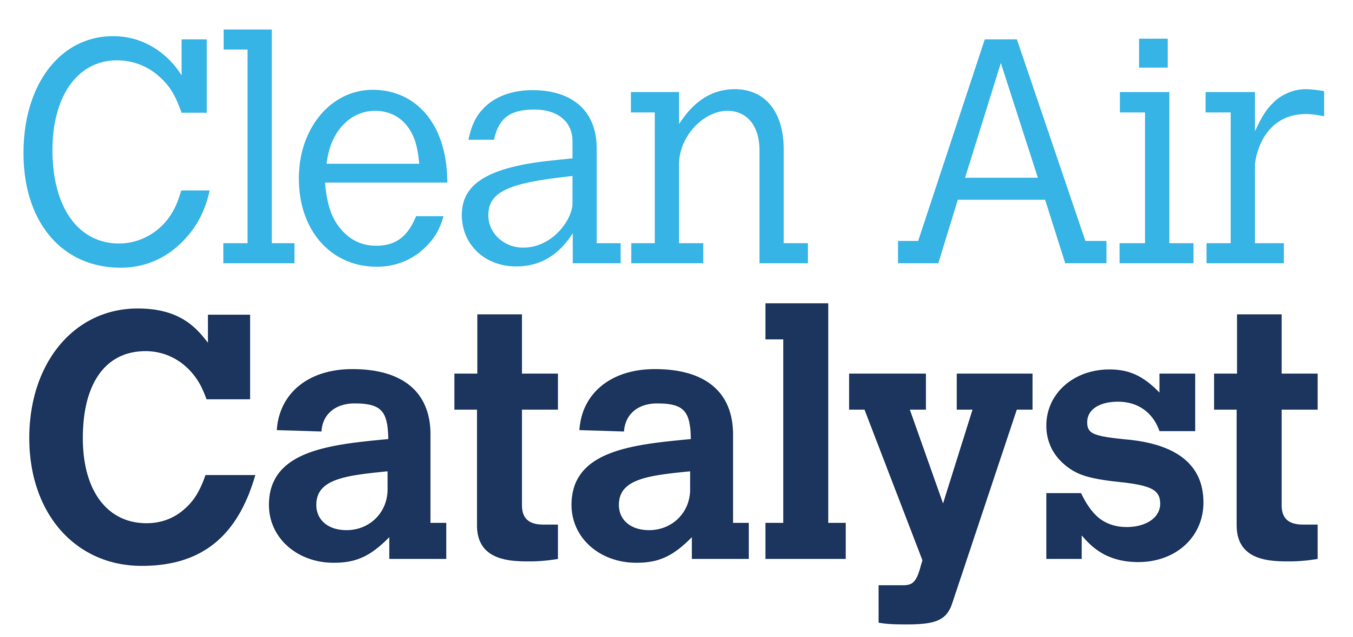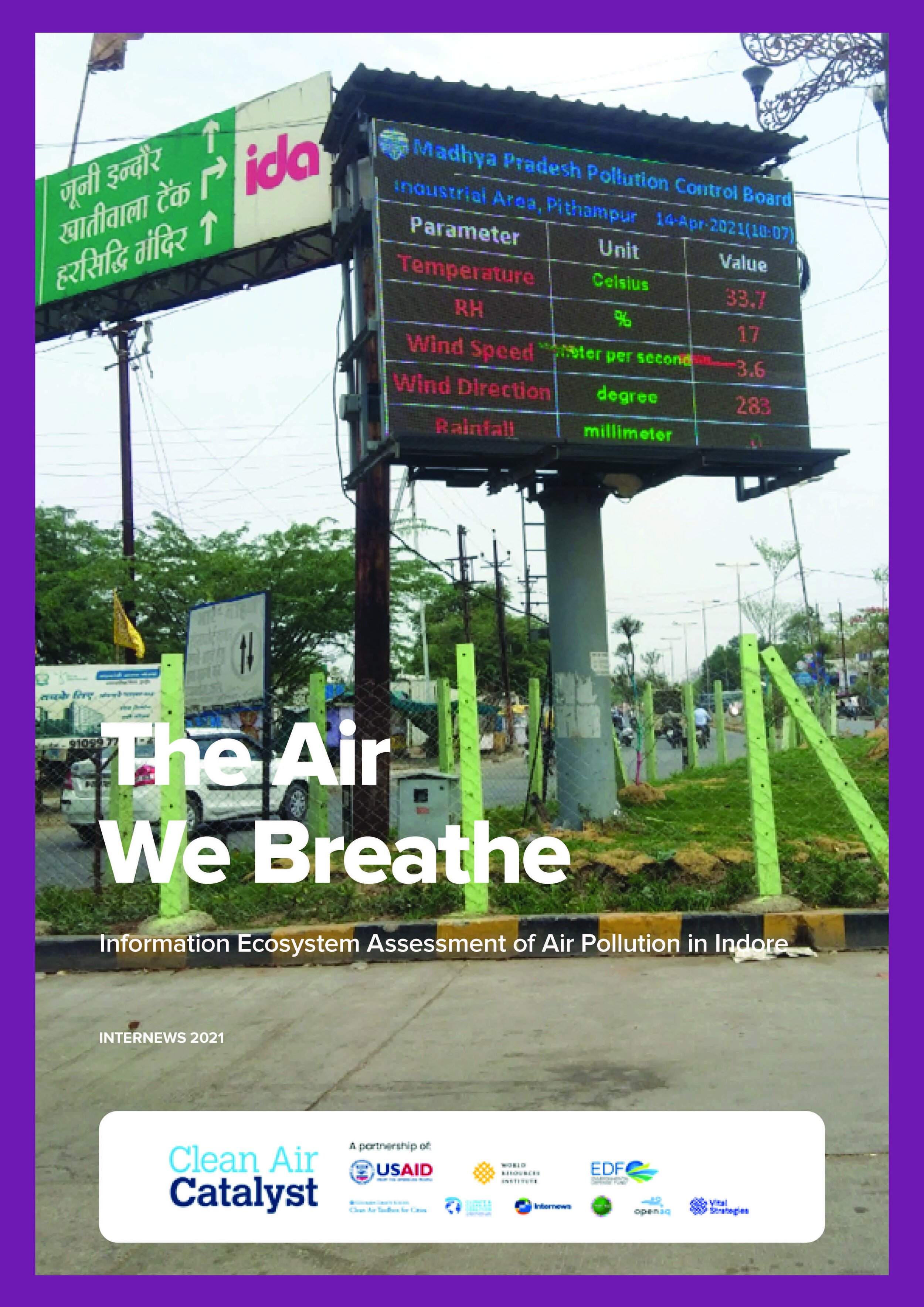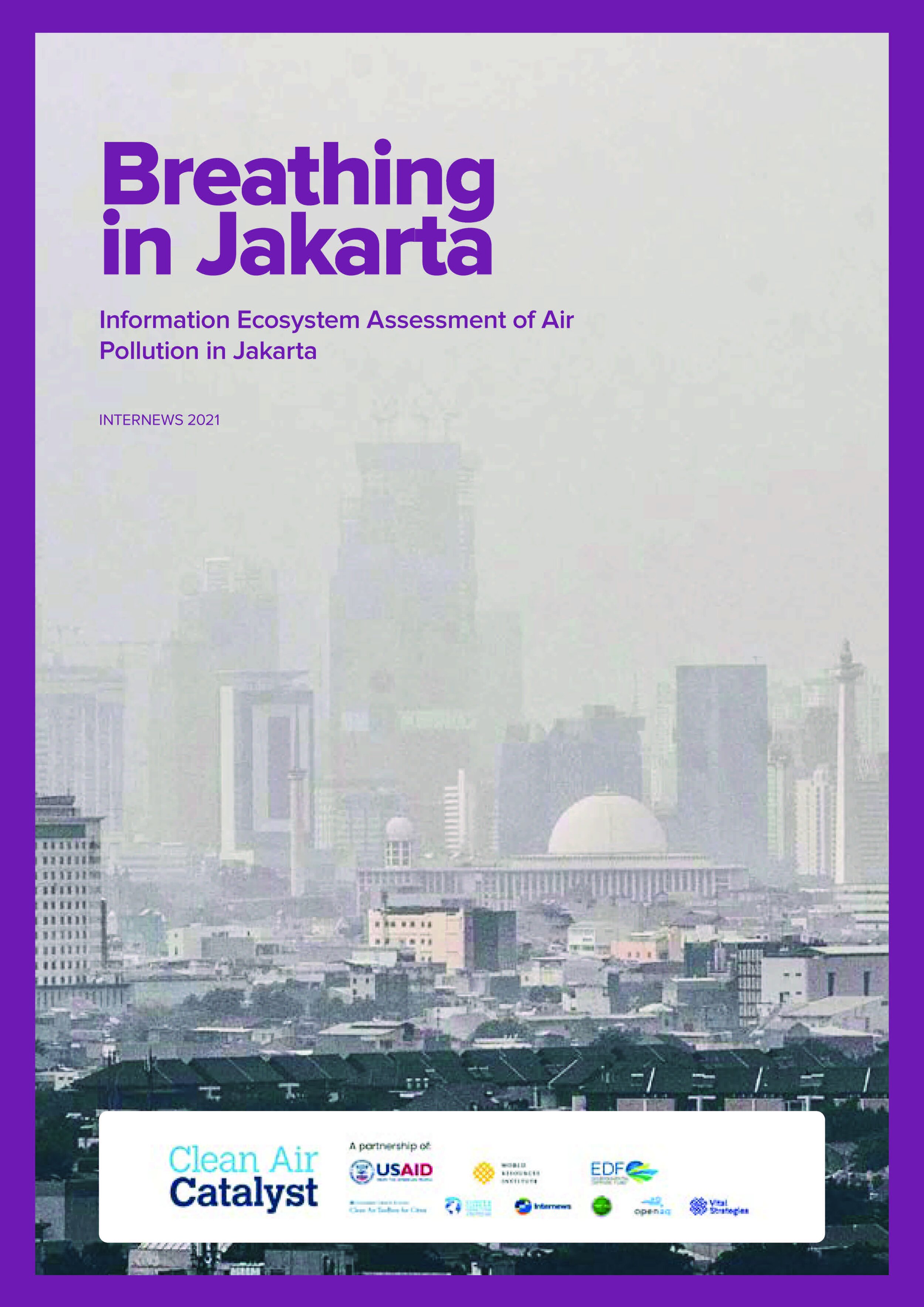EJN Assesses Information on Air Quality in Indore and Jakarta
June 17, 2022
Clean Air Catalyst (CAC) is a five-year program launched by the U.S. Agency for International Development (USAID) to accelerate clean air solutions by working with communities around the world to identify and raise awareness of local pollution sources, and to build focused coalitions which deliver interventions leading to cleaner, healthier air.
Internews' Earth Journalism Network (EJN) has joined the global consortium of organizations led by the World Resources Institute (WRI) and Environmental Defense Fund (EDF) which will work together to build capacity for tailored, self-reliant solutions that reduce air pollution and improve human health in developing countries.
Indore, India and Jakarta, Indonesia are two of the three pilot cities where the Catalyst is currently active. To understand how communities find, trust, value and share information about air quality within their own local contexts, and whether this information is derived from traditional or new media, we conducted an Information Ecosystem Assessment (IEA) in Indore and Jakarta during the first year of Catalyst. The IEA is an analytical framework that captures all dimensions of the relationship between information consumers and information supply.
In Indore, our IEA researchers collected data through a survey of 252 respondents spread over six locations across the city, six focus group discussions (FGD) and in-depth interviews with 23 key informants.
The study reveals some truly interesting information: men and women do not have equal access to information on air pollution. The survey found that more men (57%) than women (43%) have heard about air pollution information in Indore and of those who are aware of air pollution, a majority (73% of men; 71% of women) think vehicular emissions are the main source of air pollution. Healthcare workers (41%) and scientists/experts (40%) are the most trusted sources for air pollution information.
In Jakarta, the IEA research team collected data from a survey of 210 respondents, seven focus group discussions (FGD) and in-depth interviews with 18 key informants.
Like Indore, an overwhelming majority (97.6%) of the respondents in Jakarta also perceive vehicle exhaust as the main contributor of air pollution and perceive scientists (73.8%) and health workers (48.1 %) as the most trustworthy sources of information on air quality.
In both cities, a significant proportion of the respondents (36% in Indore; 19% in Jakarta) believe that besides government agencies, citizens themselves have a responsibility to ensure their own clean air.
Based on these findings, the recently launched IEA reports include a set of recommendations for different groups of stakeholders including policymakers, scientists, and the Clean Air Catalyst consortium.
For Indore, the recommendations include providing air pollution information to local communities using plain-language air pollution data explainers, visually engaging and diverse storytelling techniques and also training local journalists to identify and report on the impact of air pollution on health and the environment.
Recommendations for Jakarta also include designing visually appealing materials to communicate the impacts of air pollution, engaging the most trusted sources (scientists and health workers), and creating an information infrastructure including a website and social media channels to make current air pollution data more accessible.
“The IEA research was carried out in a very challenging environment, when the cities of Indore and Jakarta were under lockdown due to the pandemic. This restricted the research teams and limited opportunities for engagement with local communities. Yet, both reports have been able to reveal information that can guide future activities within the CAC program as well as those of other stakeholders working on air pollution,” said Stella Paul, EJN’s Environment and Health Project Officer.
“The reports provide insight on which information sources the people of Indore and Jakarta generally trust, and those they don’t (celebrities, for example). We have already begun working on some of the recommendations, such as training media personnel in both cities," she added.
Read the Information Ecosystem Assessment of Air Pollution in Indore in English. Read the Information Ecosystem Assessment of Air Pollution in Jakarta in English and Bahasa Indonesia. Read about the project and learn about EJN's recent media workshop to train local journalists in Indore on covering air pollution more effectively.
Republished from Earth Journalism Network/Internews


